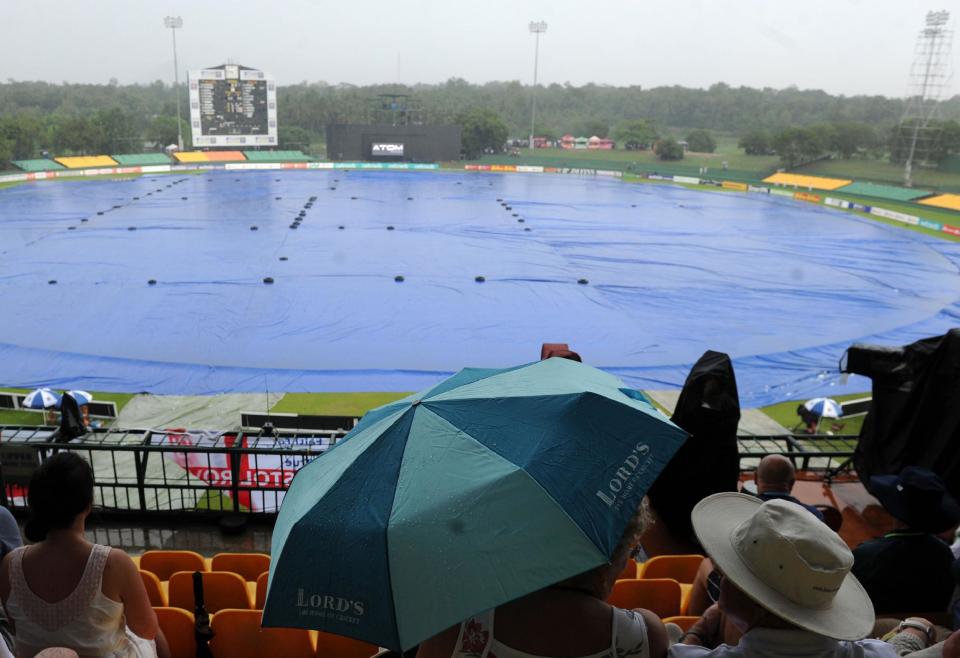Why are England playing Sri Lanka during rainy season? Fears over series washout after first ODI falls victim

Predictably, with no reserve day scheduled for the first ODI, which was washed out after just 15 overs yesterday, the sun beat down over Dambulla on Thursday.
It had on the day of the game too, before the heavens opened around 3.30pm – they would not close for three hours – leading to a washout.
The clear-up job was remarkably swift, but too much water had slipped through the enormous covers. Knowing the severity of what was to come, the umpires had even called the players off before it began.
All of which exposes the folly of playing cricket, a game requiring dryness, in Sri Lanka, in October: rainy season. Furthermore playing day-nighters, when it is generally drier earlier in the day, with reserve days only arbitrarily dotted through the series (Saturday’s second and the fifth of five matches have back-up days), seems even more barmy.
READ MORE: Willey positive about England future despite injury setback
Had the first ODI been a day game, starting at 10am like Saturday, it is likely the match would have been completed.
The contrast with the Indian summer you are enjoying in London rather jars for those wanting to watch some cricket.
When, as Eoin Morgan did last night, the captain needs to use his press conference to quell fears that the whole series could be washed out, things are pretty bleak. England have been here since the start of the month, with just one of their two scheduled warm-ups possible (even that was ended by bad light after 85 overs), and now this washout.
There are reasons why the tour is happening now.
Sri Lanka are off to New Zealand in December (the first game is on the 8th, and England finish up on November 29), Australia in January and South Africa in February and March, so this series was shoe-horned in where possible. Perhaps it is best that it is the ODIs now, not the Tests, as first-planned.
That said, all that perhaps indicates, though, is the bloated nature of international cricket’s schedule.
Administrators are quick to forget that cricketers need not be playing cricket all the time. Playing ODIs in rainy season is barely more ridiculous than playing County Championship in spring and autumn, and leaves the game a hostage to fortune.

 Yahoo Sport
Yahoo Sport 





































